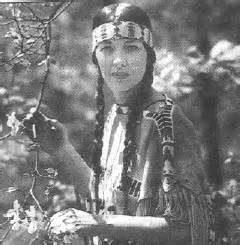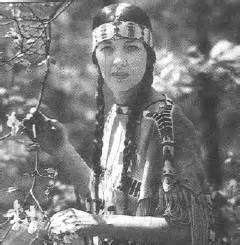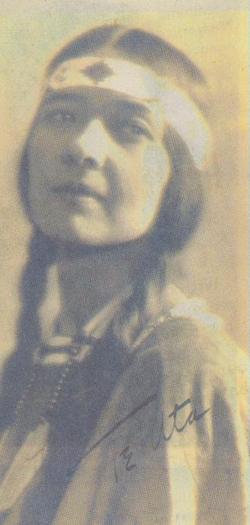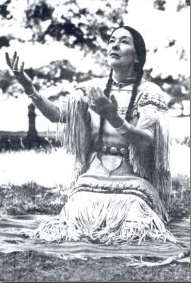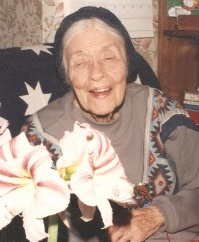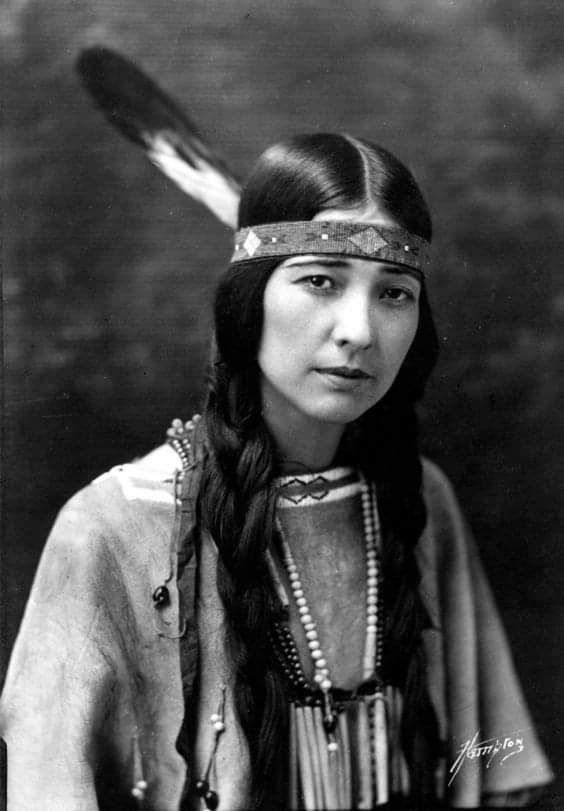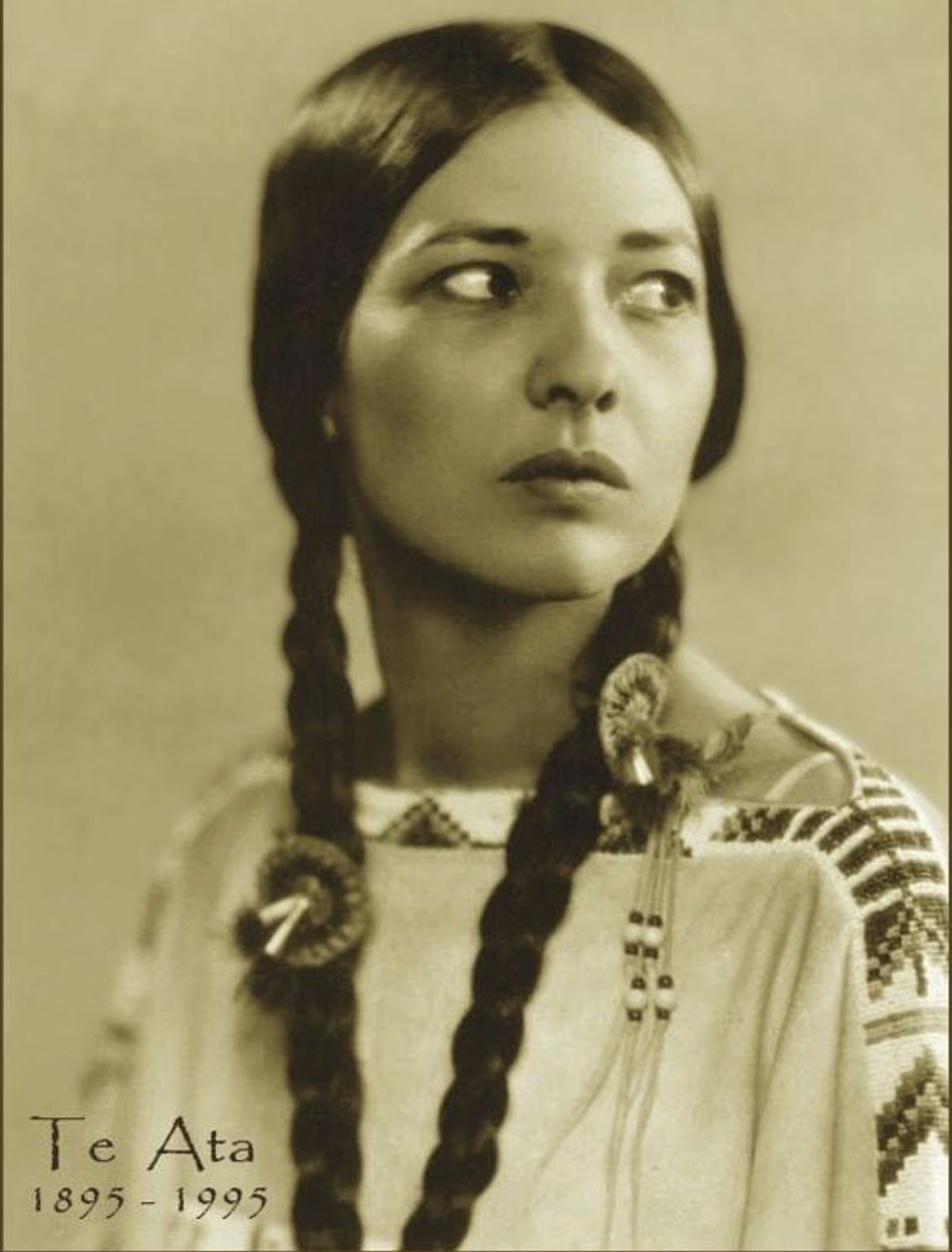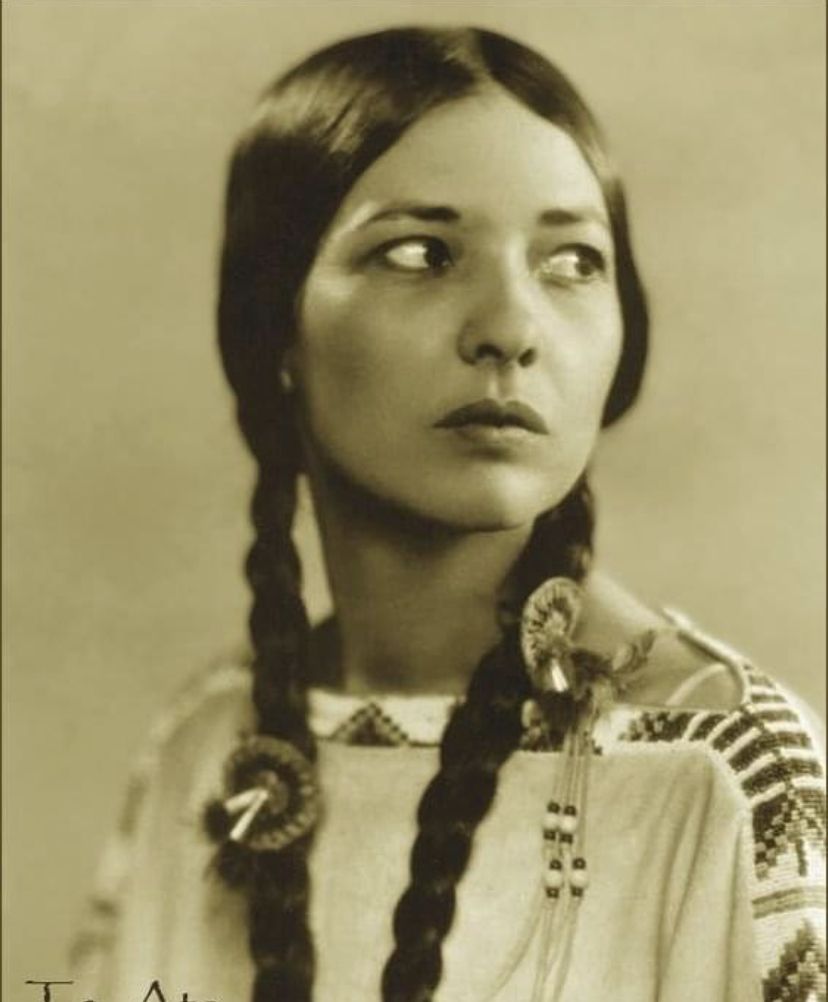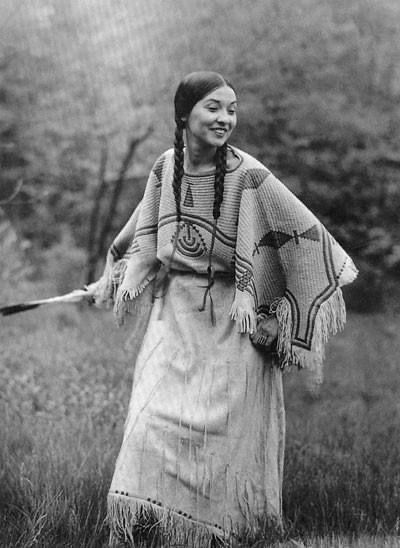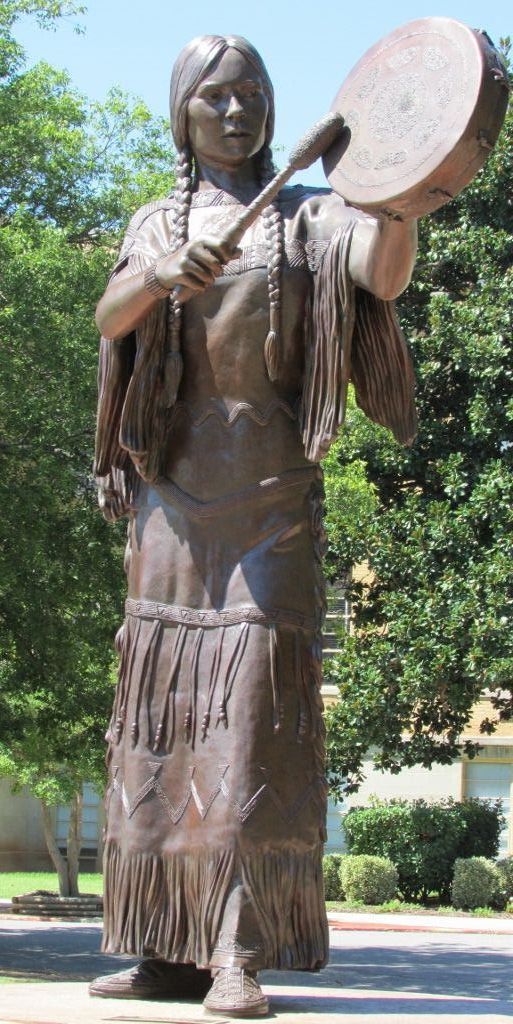She attended high school in Tishomingo, encountering "white children" for the first time. Then attended Bloomfield Academy. From there to College for Women now the University of Science and Arts of Oklahoma, in Chickasha. She also attended Carnegie Institute of Technology in Pittsburg, Pennsylvania, for one year.
Many of her performances in the 1930’s were at summer camps throughout New England and New York State. In 1933 TeAta performed for the first state dinner given by Pres. Franklin Roosevelt. In 1939 she performed again for the Roosevelt’s at their home in Hyde Park, New York, on the occasion of a state visit by the king and queen of Great Britain. Later, TeAta toured Europe, giving performances for royal families and heads of state.
The Smithsonian’s National Museum of the American Indian, together with the Chickasaw Nation and Judy Lee Oliva, Chickasaw Playwright, created a play based on the life of Chickasaw storyteller Mary Thompson “TeAta” Fisher.
Her Chickasaw name TeAta means "Bearer of the Morning."
"She was a cultural icon for Chickasaw Nation and other Native American cultures. During her career she shined a light on Native American culture throughout the United States and basically the world. She was an Oklahoma treasure and a Chickasaw treasure" said Chickasaw Governor Bill Anoatubby.
TeAta, achieved national and international acclaim as a traditional native storyteller. In 1958 she was recognized by the Oklahoma Hall of Fame. In 1976 she received the Governor's Award of Oklahoma, and was named "Woman of the Year" by the Ladies Home Journal. In 1987 she became the first person to be declared "An Oklahoma Treasure" by Oklahoma Governor Henry Bellmon.
∼TE ATA (FRANCES THOMPSON FISHER), a Chickasaw, was born in Tishomingo, Oklahoma, before statehood. Her father was a Chickasaw council member. Te Ata studied at the Oklahoma College for Women, the Theatre School at the Carnegie Institute of Technology, and Columbia University. She appeared on stage in New York, at the White House and in Europe, and Lake Te Ata in New York is named for her. Te Ata's story "Baby Rattlesnake" is a well-known children's tale of the difficulties of growing up, and is a favorite of schools and libraries throughout the country. Her work is an example of the evocative power of the oral storytelling traditions.
Possibly the most famous Chickasaw woman of recent history, Te Ata kept history alive in the oral tradition. Te Ata learned her stories listening to family members, including her mother and father in the family home in Emet, near Tishomingo. Telling stories in performances to schools and other institutions helped pay her way at the Oklahoma College for Women (presently University of Science and Arts of Oklahoma). Her stories gained popularity as she pursued a career on the stage, catching the attention and praise of dignitaries and heads of state.
As recognition of her work spread, Te Ata received acclaim from a wide variety of publications and awards from numerous institutions, including induction into the Chickasaw Hall of Fame. In the latter years of her life, Te Ata returned to Oklahoma and died shortly before her 100th birthday.
She was named Oklahoma's first "State Treasure" in 1987.
**********************************
Few Oklahomans have garnered as much attention around the world as Native American storyteller TE ATA, recognized for a lifetime of achievement by governors, presidents, kings and her alma mater, the Oklahoma College for Women.
She was born Mary Thompson and raised in Tishomingo, the daughter of a treasurer of the Chickasaw tribe, niece of a tribal governor. "Te Ata" is a Chickasaw name that means "bearer of the morning." This name captures the bright and hopeful character of her storytelling, described as "breathtaking," "majestic" and "full of grace" by reviewers in The New York Times, the Daily Oklahoman and dozens of other media.
After her graduation from OCW in 1919, she went to New York and appeared on Broadway in "Trojan Women," among many other productions elsewhere. She continued her education at the Carnegie Institute in Pittsburgh, Pa.; and studied ethnology at Columbia University in New York. But her unique persona was born when she crafted a one-woman show to illustrate and teach Indian culture. Dressed in buckskin costumes with authentic props, the striking and elegant actress presented well-researched and sensitively interpreted legends, songs and history of Indian tribes.
She performed across the United States, Canada and Europe. She was a frequent guest of Franklin and Eleanor Roosevelt in the White House and performed before King George VI and Queen Elizabeth of England. It was in her honor that the Roosevelts named "Lake Te Ata" in upstate New York. In 1933, she married Clyde Fisher, director of the Hayden Planetarium in New York.
Te Ata was named to the Oklahoma Hall of Fame on Statehood Day 1957. She was honored in 1976 by the State Arts Council with special recognition for her lifelong contributions to the arts in Oklahoma. She was named the first "Oklahoma Treasure" in 1987.
A selfless supporter of education, she donated all proceeds from her documentary, "God's Drum," to provide scholarships at USAO. Te Ata was born on Dec. 3, 1895, and died Oct. 26, 1995, just days before her 100th birthday. Her life is the subject of one film and three books.
"Art binds all people together," she wrote.
She attended high school in Tishomingo, encountering "white children" for the first time. Then attended Bloomfield Academy. From there to College for Women now the University of Science and Arts of Oklahoma, in Chickasha. She also attended Carnegie Institute of Technology in Pittsburg, Pennsylvania, for one year.
Many of her performances in the 1930’s were at summer camps throughout New England and New York State. In 1933 TeAta performed for the first state dinner given by Pres. Franklin Roosevelt. In 1939 she performed again for the Roosevelt’s at their home in Hyde Park, New York, on the occasion of a state visit by the king and queen of Great Britain. Later, TeAta toured Europe, giving performances for royal families and heads of state.
The Smithsonian’s National Museum of the American Indian, together with the Chickasaw Nation and Judy Lee Oliva, Chickasaw Playwright, created a play based on the life of Chickasaw storyteller Mary Thompson “TeAta” Fisher.
Her Chickasaw name TeAta means "Bearer of the Morning."
"She was a cultural icon for Chickasaw Nation and other Native American cultures. During her career she shined a light on Native American culture throughout the United States and basically the world. She was an Oklahoma treasure and a Chickasaw treasure" said Chickasaw Governor Bill Anoatubby.
TeAta, achieved national and international acclaim as a traditional native storyteller. In 1958 she was recognized by the Oklahoma Hall of Fame. In 1976 she received the Governor's Award of Oklahoma, and was named "Woman of the Year" by the Ladies Home Journal. In 1987 she became the first person to be declared "An Oklahoma Treasure" by Oklahoma Governor Henry Bellmon.
∼TE ATA (FRANCES THOMPSON FISHER), a Chickasaw, was born in Tishomingo, Oklahoma, before statehood. Her father was a Chickasaw council member. Te Ata studied at the Oklahoma College for Women, the Theatre School at the Carnegie Institute of Technology, and Columbia University. She appeared on stage in New York, at the White House and in Europe, and Lake Te Ata in New York is named for her. Te Ata's story "Baby Rattlesnake" is a well-known children's tale of the difficulties of growing up, and is a favorite of schools and libraries throughout the country. Her work is an example of the evocative power of the oral storytelling traditions.
Possibly the most famous Chickasaw woman of recent history, Te Ata kept history alive in the oral tradition. Te Ata learned her stories listening to family members, including her mother and father in the family home in Emet, near Tishomingo. Telling stories in performances to schools and other institutions helped pay her way at the Oklahoma College for Women (presently University of Science and Arts of Oklahoma). Her stories gained popularity as she pursued a career on the stage, catching the attention and praise of dignitaries and heads of state.
As recognition of her work spread, Te Ata received acclaim from a wide variety of publications and awards from numerous institutions, including induction into the Chickasaw Hall of Fame. In the latter years of her life, Te Ata returned to Oklahoma and died shortly before her 100th birthday.
She was named Oklahoma's first "State Treasure" in 1987.
**********************************
Few Oklahomans have garnered as much attention around the world as Native American storyteller TE ATA, recognized for a lifetime of achievement by governors, presidents, kings and her alma mater, the Oklahoma College for Women.
She was born Mary Thompson and raised in Tishomingo, the daughter of a treasurer of the Chickasaw tribe, niece of a tribal governor. "Te Ata" is a Chickasaw name that means "bearer of the morning." This name captures the bright and hopeful character of her storytelling, described as "breathtaking," "majestic" and "full of grace" by reviewers in The New York Times, the Daily Oklahoman and dozens of other media.
After her graduation from OCW in 1919, she went to New York and appeared on Broadway in "Trojan Women," among many other productions elsewhere. She continued her education at the Carnegie Institute in Pittsburgh, Pa.; and studied ethnology at Columbia University in New York. But her unique persona was born when she crafted a one-woman show to illustrate and teach Indian culture. Dressed in buckskin costumes with authentic props, the striking and elegant actress presented well-researched and sensitively interpreted legends, songs and history of Indian tribes.
She performed across the United States, Canada and Europe. She was a frequent guest of Franklin and Eleanor Roosevelt in the White House and performed before King George VI and Queen Elizabeth of England. It was in her honor that the Roosevelts named "Lake Te Ata" in upstate New York. In 1933, she married Clyde Fisher, director of the Hayden Planetarium in New York.
Te Ata was named to the Oklahoma Hall of Fame on Statehood Day 1957. She was honored in 1976 by the State Arts Council with special recognition for her lifelong contributions to the arts in Oklahoma. She was named the first "Oklahoma Treasure" in 1987.
A selfless supporter of education, she donated all proceeds from her documentary, "God's Drum," to provide scholarships at USAO. Te Ata was born on Dec. 3, 1895, and died Oct. 26, 1995, just days before her 100th birthday. Her life is the subject of one film and three books.
"Art binds all people together," she wrote.
